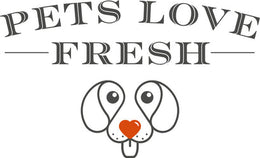Why is my dog throwing up undigested food?
If your dog is regularly vomiting undigested food, it could be due to various reasons. Most of the time, bringing up undigested food soon after eating is due to regurgitation rather than true vomiting. Here are some common causes that may contribute to this issue:
Eating Too Quickly
Some dogs have a tendency to eat too quickly, leading to vomiting shortly after a meal. We can help prevent this by offering smaller but more regular meals and by using slow feeder bowls.
Gastrointestinal Upset
Your dog may have a sensitive stomach or be experiencing temporary gastrointestinal upset. This could be caused by changes in diet, the ingestion of spoiled food, or mild dietary indiscretions (eating something they should not have).
Food Allergies or Intolerances
Dogs can develop allergies or intolerances to certain ingredients in their food. This may result in the regurgitation of undigested food or vomiting. Other signs can include itchy skin, diarrhoea and unexpected weight loss. Usually, food allergies develop before the age of 3 and some of the most common allergens include wheat, peas and soya.
Pancreatitis
Inflammation of the pancreas (pancreatitis) can lead to digestive issues and vomiting. This condition requires veterinary diagnosis and treatment such as IV fluids, pain relief and anti nausea medicine. As well as bringing up food, your dog may be lethargic and slow when moving due to pain in their abdomen.
Parasites
Intestinal parasites, such as worms, can lead to vomiting and may result in the appearance of undigested food in vomit. We can also see a dull coat, loose poo and excess hunger. Worms are most common in puppies but can be seen at any age.
If your dog is regularly vomiting or if there are other concerning symptoms (such as lethargy, diarrhoea, or changes in behaviour), it's crucial to consult with a vet. They can perform a thorough examination, run diagnostic tests if needed, and recommend an appropriate course of action based on the underlying cause of the vomiting.
Early intervention can help address potential health issues and improve your dog's well-being. Your vet may also suggest dietary adjustments. Many owners look into sensitive stomach dog food and hypoallergenic dog food when searching for gentler options.

